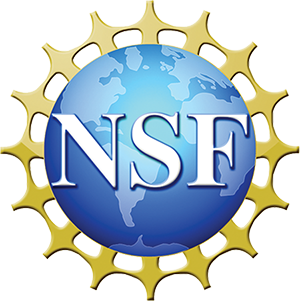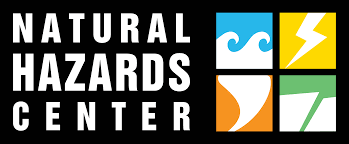Key Takeaways:
- The CONVERGE facility at the Natural Hazards Center at the University of Colorado Boulder has launched a global registry to foster collaboration among scientists studying the social impacts of COVID-19.
- Projects already ongoing are looking at economic uncertainty and business recovery, mental health, mutual aid and volunteerism, and online learning.
- Organizers say this is a ‘transformative moment’ for the social sciences and convergence research.
April 26, 2020 — What’s driving violent anti-Chinese discrimination in Nairobi, Kenya, amid the COVID-19 pandemic, and what can be done to quell it? How are part-time workers in central Florida handling massive furloughs, and what could their employers be doing better? What unique challenges did people with disabilities face in Wuhan, China, during the lockdown?
These are among the countless questions social scientists around the globe are asking as they swiftly pivot from previous projects to learn all they can from arguably the most socially disruptive event in modern history.
To provide leadership, catalogue projects and create a vehicle for collaboration across disciplines and distances, the CONVERGE facility, headquartered at the Natural Hazards Center at the University of Colorado Boulder, has launched the COVID-19 Global Research Registry for Public Health and Social Sciences.
“This is a transformative moment for the social and behavioral sciences,” said Center Director and sociology Professor Lori Peek. “We have decades of lessons learned from past disasters to apply. But this is the first global event in living memory that reveals so fully our need to understand human behavior. We are mobilizing to learn from it and use that knowledge for public good.”
The first-of-its-kind registry, available in English, French, Italian, Mandarin Chinese, and Spanish, i analogous to clinicaltrials.gov for the medical sciences. To sign up, one must be studying social, behavioral, or public health aspects of the pandemic. Journalists, funding agencies, philanthropists, and other researchers will be able to peruse the site, looking for story ideas, beneficiaries, and collaborators.
The efforts grew out of CONVERGE and the Social Science Extreme Events Research Network, both National Science Foundation-funded initiatives meant to serve as a connective tissue to help scientists and engineers from across the world collaborate in the study of natural hazards, including natural disasters.
“As an international organization based in New York City, we at the Social Science Research Council (SSRC), recognize that scholarly deliberation and extended perspective play a unique and important role in this moment,” says SSRC president Alondra Nelson. “We are honored to partner with the CONVERGE and the Natural Hazards Center to continue the SSRC’s longstanding mission to support researchers and to advance and mobilize research for the public benefit—a mission that is most urgent today.”
On March 19, just as stay-at-home orders were beginning to kick in across the country, Peek convened a CONVERGE virtual forum to discuss a different kind of disaster.
Nearly 300 social scientists attended remotely from around the world – many with projects underway, exploring everything from the virus’s implications for mental health to the role of tech in helping children stay connected to what kinds of messaging garner trust vs. distrust.
“The team here realized there is so much momentum, we have to do more,” said Peek, who is also principal investigator of CONVERGE and the Social Science Extreme Events Research Network.
Aaida Mamuji, an assistant professor at York University in Toronto, has participated in the CONVERGE virtual forums and was among the first to sign up for the new registry. Through her study, her team will survey residents in the large Chinese communities of Toronto, Canada and Nairobi, Kenya, about the backlash they have experienced since the virus first emerged.
“The long-term goal is to develop counter measures to reduce misinformation, combat stigma, and counteract fear associated with this public health disaster,” Mamuji said. “We hope this research project will contribute to mitigating the targeting of specific ethnic groups in future infectious disease outbreaks.”
Chelsea LeNoble, an assistant professor of industrial organization psychology at Embry-Riddle Aeronautical University in Florida, has also signed on.
Through studies involving everyone from university faculty to employees at theme parks, restaurants, health care facilities and airlines, her team hopes to learn what employers are doing right and could be doing better to bolster worker resilience.
“The biggest issues facing society today cannot be solved by one discipline alone,” LeNoble said. “This is the time for people to work as a team of teams with the goal of understanding much more together than we can alone. The registry is a fantastic step in the right direction.”

Tweets
Calling all #socialscience #researchers studying #COVID19! Join the #NSF funded Global Research Registry for Public Health and Social Sciences!
https://converge.colorado.edu/resources/covid-19/public-health-social-sciences-registry
#COVID19 has made #data sharing more important than ever. Join the #NSF funded Global Research Registry for Public Health and Social Sciences!
https://converge.colorado.edu/resources/covid-19/public-health-social-sciences-registry
Follow us:
@CUBoulderNews
@HazCenter
@NHERI_CONVERGE
Contact
Lisa Marshall, CU Boulder Media Relations
lisa.marshall@colorado.edu
303-492-3115
Lori Peek
lori.peek@colorado.edu
Learn More
Natural Hazards Center, University of Colorado Boulder
https://hazards.colorado.edu/
CONVERGE
https://converge.colorado.edu/
Social Science Extreme Events Research Network
https://converge.colorado.edu/research-networks/sseer
The COVID-19 Global Research Registry for Public Health and Social Sciences is a worldwide registry for the identification of COVID-19-related research and risk reduction efforts. It has been launched by the National Science Foundation-supported CONVERGE facility and the Social Science Extreme Events Research (SSEER) Network in response to a call from the (NIEHS) Working Group for Disaster Research at the National Institutes of Health. Key partners include: The Global Alliance of Disaster Research Institutes (GADRI), Integrated Research on Disaster Risk (IRDR) Programme of the International Science Council, International Social Science Council, and United Nations Office for Disaster Risk Reduction (UNDRR), International Sociological Association Research Committee on Disasters (ISA-RC39), National Institute of Environmental Health Sciences (NIEHS), North American Alliance of Hazards and Disaster Research Institutes (NAAHDRI), Pacific Risk Management ‘Ohana (PRiMO), PeriPeri U — Partners Enhancing Resilience for People Exposed to Risks, Puerto Rico Research Hub at the University of Central Florida, Scholars Strategy Network, Social Science Research Council, RISE Network, and the University Network of the Americas and the Caribbean for Disaster Risk Reduction (Redulac/DRR).




CONVERGE is funded by the National Science Foundation (NSF), Division of Civil, Mechanical, and Manufacturing Innovation, Program on Humans, Disasters, and the Built Environment (Award #1841338). Any opinions, findings, conclusions, or recommendations expressed in this material are those of the authors and do not necessarily reflect the views of the NSF.